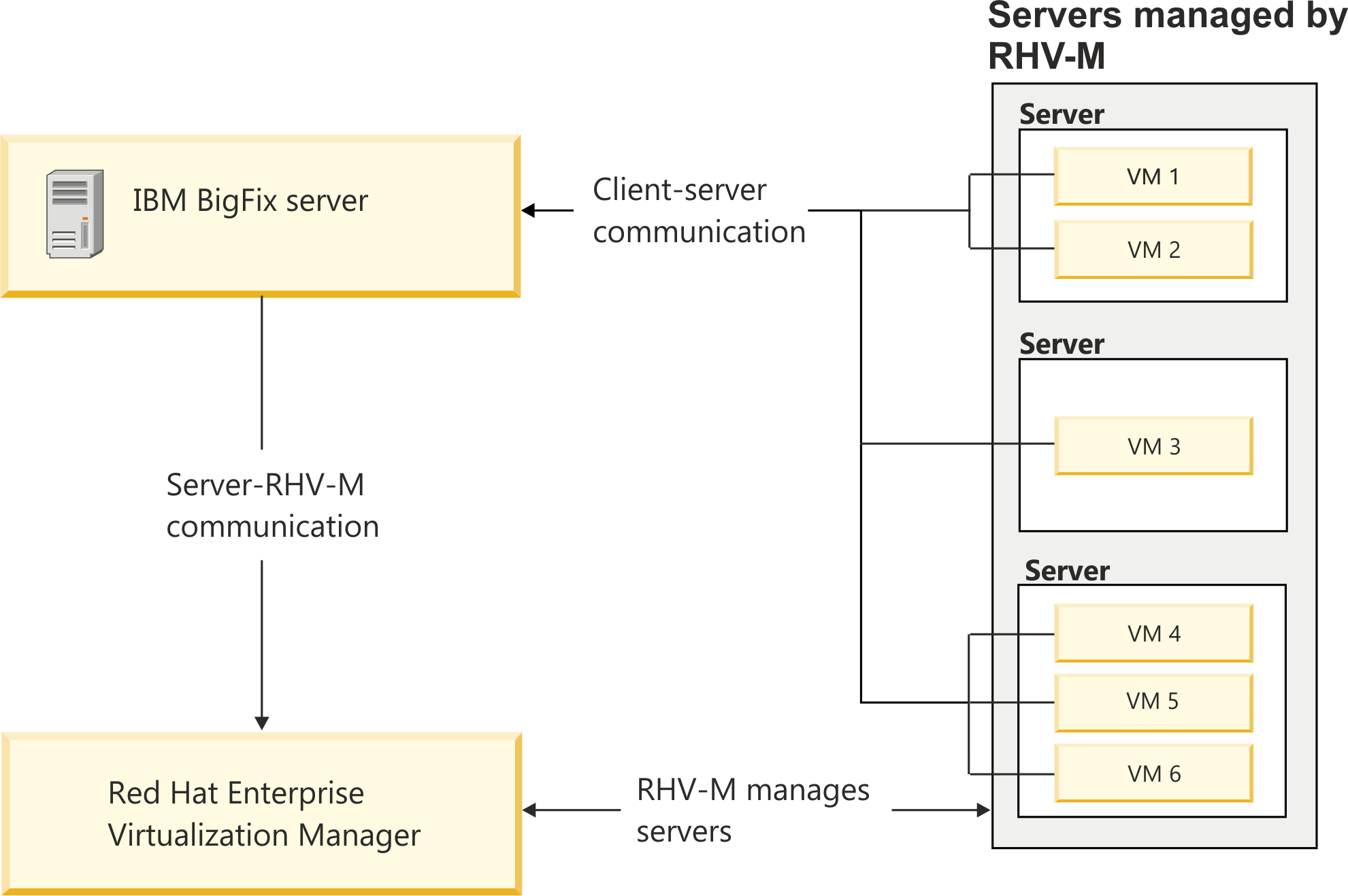Kernel-based Virtual Machine
Kernel-based Virtual Machine is one of the virtualization technologies supported by BigFix Inventory.
Purpose
Kernel-based Virtual Machine (KVM) is a full virtualization solution for Linux®. In the KVM architecture, each guest (virtual machine) is implemented as a regular Linux process. After you install KVM, you can run multiple guests, with each of them running a different operating system image. Each of these virtual machines has private, virtualized hardware, which includes memory, storage, graphics adapter, and a network card. This allows KVM to benefit from all the features of the Linux kernel.
Collecting capacity data
Capacity data is collected from virtual machines that are managed by KVM hosts in two ways:- Capacity data from x86 KVM hosts that are controlled by RHV-M is collected by the VM Manager Tool.
- Capacity data from x86 KVM hosts that are not controlled by RHV-M and from PowerKVM hosts is collected directly from the host by using the Run Capacity Scan on Virtualization Hosts fixlet. For more information, see: Collecting capacity data directly from KVM hosts.
Red Hat Virtualization Manager (RHV-M)
Red Hat Virtualization (RHV, previously known as Red Hat Enterprise Virtualization) is an enterprise virtualization product based on the KVM hypervisor. RHV-M is a service running on a Red Hat Enterprise Linux server that provides interfaces for controlling the virtualization platform. It manages provisioning, connection protocols, user sessions logins and logoffs, virtual desktop pools, virtual machine images, and the high availability and clustering systems. RHV-M provides the REST API that is used by BigFix Inventory to collect information about the whole infrastructure that is managed by RHV-M.
https://<RHV-M_IP_address>/ovirt-engine/apiSupported versions:
For a full list of supported versions, see: Supported virtualization types.
